Friday, 14 December, 2001, 07:00 GMT
Profile: Morgan Tsvangirai

Zimbabwe's newest political phenomenon
Morgan Tsvangirai emerged from a trade union background to become the most effective opposition leader in Zimbabwe since independence.
In the June 2000 general election his young party, the Movement for Democratic Change (MDC), inflicted a stunning blow on the ruling Zanu-PF party's usual iron grip on power.
The MDC gained 57 of the constituency-based seats, against 62 held by Zanu-PF - a result without precedent in Zimbabwe, where opposition parties had never held more than a handful of seats.
Mr Tsvangirai himself was not elected. Turning down the opportunity of a seat in one of the cities, where the MDC's support is strongest, the MDC leader chose instead to stand in his home district - which, like most rural constituencies, was won by Zanu-PF.
By helping to inflict a dramatic defeat on the government over its constitutional reform bill the previous February, Mr Tsvangirai won an aura of credibility which was enhanced by the general election result.  Click here to watch the BBC Hardtalk interview with Morgan Tsvangirai.
Click here to watch the BBC Hardtalk interview with Morgan Tsvangirai.
 Click here to watch the BBC Hardtalk interview with Morgan Tsvangirai.
Click here to watch the BBC Hardtalk interview with Morgan Tsvangirai. Mr Tsvangirai has been performing a delicate political operation - attempting to maintain popularity and political momentum whilst holding together the very disparate interest groups gathered under the MDC umbrella.
Born in 1952 in Buhera in eastern Zimbabwe, Morgan Tsvangirai was the eldest son of a bricklayer.
The young Morgan left secondary school to become a textile weaver, but then went to work in a mine in Bindera, north-east of Harare, where he became involved in union actitivies and rose rapidly to become leader of the mining union.
A political force
In the late 1980s, Mr Tsvangirai became head of the Zimbabwe Congress of Trade Unions, which had been set up at Zimbabwe's independence.
But it was another decade before he really emerged as a political force.
In December 1997 and early 1998, Mr Tsvangirai led a series of strikes - so-called "stay-aways" - against tax increases which brought the country to a standstill.
 Mr Mugabe: Forced to rescind taxes |
These forced the government of President Mugabe to cancel two tax increases and, as it turned out, also to abandon a promised tax to help fund war veterans' pensions.
A pointer to the future
This was an ironic foreshadowing of the political confrontation between the veterans and Mr Tsvangirai's supporters over the issue of farm occupations.
In 1999 Mr Tsvangirai helped to create the MDC.
Within months, the new party had defeated the government over its referendum on constitutional reform, which included clauses allowing the seizure of white-owned farms without compensation.
 Mr Tsvangirai has capitalised on economic discontent |
It was the most dramatic political set-back for President Mugabe since independence.
But even this was eclipsed by the MDC's election showing.
Mr Tsvangirai is seen as representing a younger generation of Zimbabweans, particularly urban workers, who are less interested in Mr Mugabe's historical role as Zimbabwe's founding father than what they see as his recent record of economic mismanagement.
What kind of emailer are you? Find out today - get a free analysis of your email personality. Take the quiz at the Yahoo! Mail Championship.


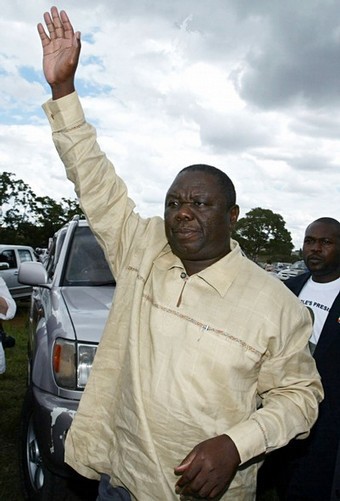
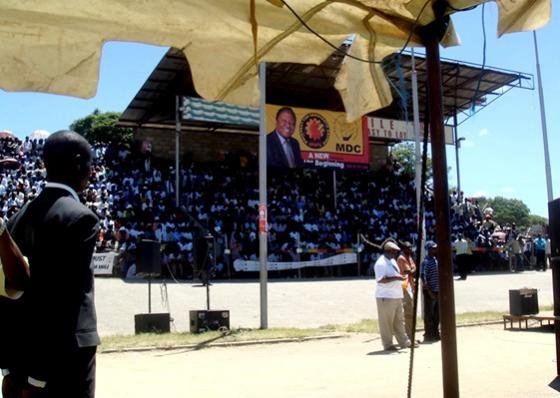
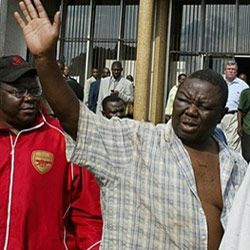
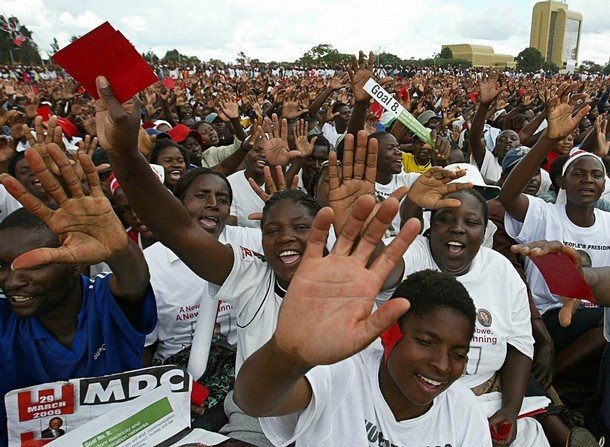











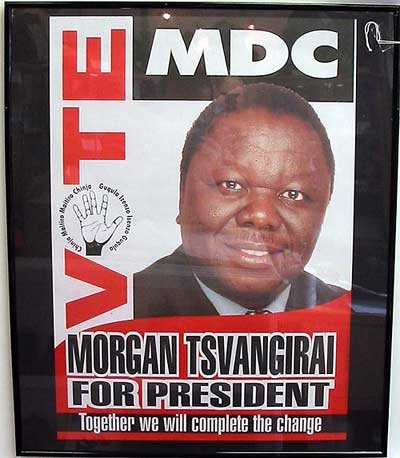
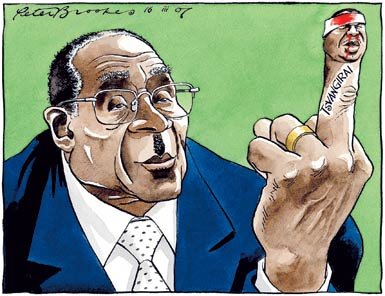



No comments:
Post a Comment